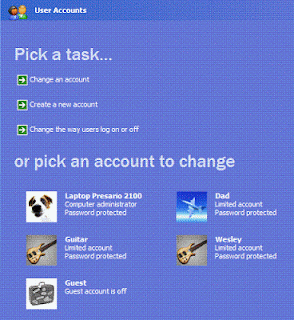If you
have just bought a new personal computer for your home and want to secure it
various vulnerabilities (including protecting it from viruses and spyware).
Internet hold dangers for the unwary computer user.
Without proper precautions, your data is at
risk every minute when your system is connected to the web.
Here are some of the most useful handy tips to make your PC
secure.
1. Vaccinate Your PC – Computer viruses are vile bits of
code that can cause a lot of damage to your PC. To stay safe, your first line
of defense should be a good antivirus suite from companies like Norton and
McAfee, or download and install Microsoft Security Essentials from http://bit.ly/HCeRGz.
In fact you can download AVG Antivirus 2012 from
http://free.avg.com/gb-en without paying any fee.
2. Check your Firewall – Firewall can either be
software-based or hardware-based that filters and monitors the data sent
to and received from the internet. It stops anyone accessing your PC over the
internet without permission. Windows gives you a built in firewall. You
must ensure that your firewall is ON before you connect to the outer world
through internet.
To check your, click Start -> Control Panel ->
System -> Security -> Check Firewall Status. The firewall status should
be “ON”.
3. Stay Upto Date – To protect your PC from
vulnerabilities you can, or should, make sure your PC is kept up to date
and has the necessary patches to keep it safe. Updates helps to cure bugs that
cause crashes and add new features.
To update manually click Start -> type ‘Update’. Now click
Updates Windows -> Check for Updates to see any new updates. Click
Install Updates to apply them. You can automate the process by configuring
Automatic Updates in Windows.
4. Password - A password is a
secret word that is used for authentication. Make sure all the
user accounts on your PC should be protected by a password. To set passwords,
lick Start -> Control Panel -> User Accounts and Family Safety ->
change your Windows Password. In case if there is no password cluck
Create your Windows Password.
You must
choose a strong password which is difficult to guess. You can visit to get
some useful password creation tips by Microsoft Safety &
Security Center Password
Checker.
5. Get Early Warnings – Mostly our PC gets infected by
visiting an infected website. To safe your PC from visiting such infected
websites download McAfee SiteAdvisor tool or AVG tool.
6. Limit Admin Access – It’s a good idea to use your PC with
a standard user account, and use your Administrator account only when you
need to make big changes. As if a hacker comes along, they will find it
difficult to infiltrate your machine.
In Control Panel select Add or Remove User Accounts ->
Create new account. Select Standard User and provide an account name. Don’t
forget to set password for account.





No comments:
Post a Comment